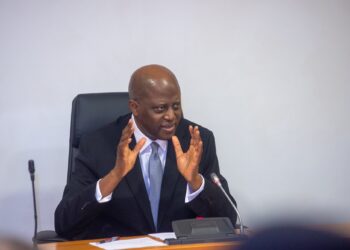Nigeria has collected more than ₦600 billion in Value Added Tax (VAT) from international digital service providers such as Facebook, Amazon, and Netflix. This follows amendments to the VAT Act, which now bring non-resident companies into Nigeria’s tax system.
Mr. Mathew Osanekwu, Special Adviser on Tax Policy to the Chairman of the Tax Reforms Committee, announced this on Wednesday, September 10, during a workshop for media practitioners in Abuja.
He said foreign firms now pay VAT under Section 10 of the Act and act as registered collection agents in Nigeria.
“These are not Nigerian entities, but they now pay VAT under Section 10 of the VAT Act. They are registered in Nigeria and also serve as collection agents,” Osanekwu stated.
He emphasized that this measure follows global best practices and ensures Nigeria benefits from taxes on services consumed locally but delivered by foreign companies.
Government Addresses Public Concerns on Tax Reforms
The Federal Government also sought to ease public worries about new levies. Officials clarified that President Bola Tinubu’s fiscal and tax reforms have not introduced any new taxes.
Professor Taiwo Oyedele, Chairman of the Presidential Committee on Fiscal Policy and Tax Reforms, said the reforms aim to reduce the burden on low- and middle-income earners while promoting fairness.
“It’s not a new tax. Some claim it is being proposed, but it is not. People believe this president has introduced tax after tax. I challenge them to point to one newly introduced tax,” Oyedele said.
He noted that in July 2023, two months after taking office, President Tinubu signed executive orders suspending taxes imposed during the Buhari administration, including excise duties on plastics and vehicle imports.
“Many people are unaware because the president did not allow those taxes to take effect. They were suspended and later removed,” Oyedele said. He added that the Cybersecurity Levy existed before Tinubu’s administration.
Tax Reforms to Take Effect in 2026
The reforms will start in January 2026. They aim to strengthen Nigeria’s tax system, expand the revenue base, and improve compliance. Nigeria’s current tax-to-GDP ratio is 10.8 percent, below Africa’s average of 16 percent.
Oyedele said the reforms will consolidate overlapping taxes and link levies transparently to projects. Nigerians earning under ₦800,000 annually will pay no personal income tax. Small businesses earning less than ₦100 million annually will pay zero corporate tax.
“This is the most progressive reform Nigeria has seen. It removes taxes on the poor, eases the middle class’s burden, and targets high-income earners fairly,” Oyedele said.
Economic Challenges and the Need for Reform
Oyedele described Nigeria’s economy in May 2023 as “on the verge of collapse.” He said foreign reserves were strained by subsidy debts and crude pre-sales. He warned that continuing subsidy financing through crude-backed loans could have halted fuel imports, similar to Sri Lanka’s crisis.
“People may ask if life is better now than two years ago. The right question is: would life be better today without these reforms?” Oyedele asked.
Source: Independent.ng












